Food in Ecuador healthy? But is it really?
My #1 reason for considering Ecuador is due to many, many posts on various forums where folks talk about healthy living, "organic" food and abundance of "clean, healthy produce" and how "fertile Ecuador soil" is. And I see photos of gigantic papayas and I think "That's where I'm going".
But then I read the statistics and I question it. If the soil is so fertile and everything grows in such abundance, then why so much chemical use?
- Ecuador is in the top 15 world countries in fertilizer use (per hectare) and rising sharply (with Costa Rica (pura vida?!?) even worse).
- In top 20 world countries, Ecuador has the highest usage of pesticides (per hectare). (More than the usual suspects - China, U.S., Argentina, etc...). 'Pura Vida' is by far even worse. I mention Costa Rica as well, because that is the other "healthy life/food paradise".
I really hope this thread gets flooded with statistics in support of Ecuador's truly healthy, chemical-free food and cheers me up .. 'cause I'm kind of discouraged. Or maybe I just wanted to believe that it was the way I dreamed it would be. Sniff :-(
https://data.worldbank.org/indicator/AG … _desc=true
https://www.worldometers.info/food-agri … y-country/
I don't have any reliable statistics, Lizz.
I just want to applaud you for bringing up a topic that is of huge importance -- not just in Ecuador and Costa Rica, but in countries worldwide. 
I encourage those with inside knowledge to contribute to this potentially valuable thread.
cccmedia in Quito
Organic food is available. However, it is at a price premium if one buys it labeled that way in a supermarket.
It is possible to find organic farmers and buy produce directly from them.
lol ... you guys are fast. I reconsidered that post. It just didn't sound right and I don't even have boots on the ground yet, so I don't feel that I was qualified to post it.
lizzaritimonohi2 wrote:(OP Lizz floated the idea of hiring a farmer to grow organic food for individual Expat/s. The post has now been drastically modified by the OP. -- cccmedia)
Be careful in considering financial involvement in farming here in Ecuador.
USA Expat Domenick Buonamici a.k.a. Mr. Second Passport recently posted a cautionary tale about investing in farming in La República. He titled it How I Lost $10,000 Trying to Grow Stevia in Ecuador.
It's easily searched at YouTube.com ...
cccmedia
I saw a number of his vids. (see above why I removed the post). I'm trying to keep it simple. Come to Ecuador, train and eat clean. But then those statistics rained on my parade
I happen to agree that neither hype nor statistics tell the story.
I wouldn't get carried away with statistics in this case, good or bad.
Go with your plan to come to Ecuador, Lizz, whether for a visit or residency. Then network around until you get more clarity. Visit some farms, talk with farmers and others in the know.
The farming epicenter of Ecuador is probably Vilcabamba. There are some wise and informed growers there. It could be an eye-opening trip for the OP of this thread.
cccmedia in Quito
Thank you for that. Your post has a positive and encouraging vibe. A ray of hope :-)
I still hope folks chime in with their thoughts on hype vs statistics - good way to put it.
I live several kms outside Vilcabmba on a finca, and grow many organic kinds of food. Many many people here eat organic and it is cheap. You should know this about Ecuador. However, I do not go to the big city Loja , tothe Supermaxi, expecting to buy veggies. I buy stuff like cheese there, European chees,e because it is cheaper than in Vilcabamba. Fruits and veggies I source locally. There are so very many options you will have no problem at all.
Helen
So far we've mostly been discussing farmed products.
Shopping to eat healthy in South America is about more than that, of course.
Take the substance that concerns many Expats, especially those of retirement age, and their doctors -- sugar.
Fortunately, based on my recent weeks back in Ecuador, it seems that those of us who prefer (or need) to be on reduced-sugar regimens have more choices than we did years ago.
I have been shopping in recent days at El Comisariato in El Centro .. and inspecting labels along the way.
---
Like practically everyone, I love to eat ice cream. I can't just eat Hagen Dasz or another fancy brand with 40 grams of sugar in each portion.
So I was pleased to find the Topsy brand of ice cream at Mi Comisariato. Their ice creams have just nine grams of sugar in a portion.
And they're delicious. I've tried four flavors of ice cream so far: chocolate, vanilla, strawberry and 'ron pasas' -- rum raisin. They're in the '1 litro' size, which, according to the labels, provides ten portions.
Somebody put 'alto en azúcar' on the label -- which means high in sugar.
But, hey, that's just their opinion, man. My doctors would consider nine grams within the acceptable limit as long as you don't overdo it.
cccmedia
I've also discovered some sugar-free fruity beverages, which are widely available in Quito, not just at Comisariato markets.
These are the lightly-carbonated, sugar-free Frutaris and Fresaris brands of beverages, under the umbrella of the bottled-water giant Tesalis. Flavors include apple (the most common flavor), pear (my personal flavor fave), peach and strawberry.
On the labels of the bottles in the size I buy (355 ml or 12 fluid ounces) it clearly says 'no contiene AZÚCAR' -- does not contain sugar.
However, like the ice cream discussed above, most of the lettering on the back of the bottle/container is so tiny I have no idea how they sweeten these sugar-free and low-sugar products.
cccmedia in Quito
These two posts have been about the absence of sugar or relatively low-sugar content; they are not meant to imply good or bad implications of other ingredients. Read labels (when possible) or otherwise research sugar-free products to make up your own mind about your purchases.
I do not receive financial compensation -- or mercancías -- for mentioning these products or any other products I may discuss on this thread.
My #1 reason for considering Ecuador is due to many, many posts on various forums where folks talk about healthy living, "organic" food and abundance of "clean, healthy produce" and how "fertile Ecuador soil"
that is basically wrong. Foreigners come here and assume that shopping in a fruit and veg shop that everything is organic, it isn't. Not by a long way. They use lots of pesticides and chemical ferilizers. But people don't want the dream shattered and refuse to believer it.
cccmedia wrote:I happen to agree that neither hype nor statistics tell the story.
The farming epicenter of Ecuador is probably Vilcabamba. There are some wise and informed growers there. It could be an eye-opening trip for the OP of this thread.
cccmedia in Quito
No it isn't, not by a long way. There is minimal "farming" around vilcabamba. Sure there are some small holdings, but what they grow is limited and to call it the centre is just wrong.
The main farming centre would be Ambato region, where you see polytunnel after polytunnel. It's here they mass produce the majority of the country's food (not including things like bananas / sugar cane)
HelenPivoine wrote:I live several kms outside Vilcabmba on a finca, and grow many organic kinds of food. Many many people here eat organic and it is cheap. You should know this about Ecuador. However, I do not go to the big city Loja , tothe Supermaxi, expecting to buy veggies. I buy stuff like cheese there, European chees,e because it is cheaper than in Vilcabamba. Fruits and veggies I source locally. There are so very many options you will have no problem at all.
Helen
cheap in relation to western countries, organic food in Ecuador is not cheap relative to ecuador (even in vilcabamba). And to say you will have no problems at all, well that is if you accept you cannot always buy what you want to buy. Obviously it's seasonal when you rely on small holdings and a lot of the time it's glut or famine. Compared to going to the market where you have all your veg available all year round from the big produces.
There are no big producers of organic food providing year round selection in Ecuador or Vilca.
Make your relocation easier with the Ecuador expat guide
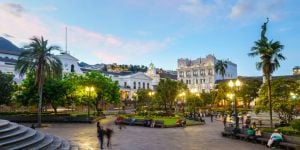
Work in Ecuador
Ecuador is famous as a retirement haven. But you might not want to wait until retirement age to move there and ...

Healthcare in Ecuador
Ecuador, as a fast-developing nation, has laws that are constantly evolving, but one thing is certain: the ongoing ...
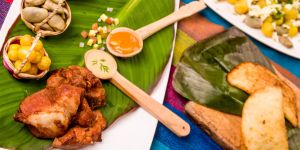
Food in Ecuador
What kind of food will you find in restaurants, cafes, and private homes in Ecuador? Many restaurants in Ecuador ...

Leisure activities in Ecuador
You have made it to Ecuador, now what is there to do in your free time? A lifetime in Ecuador isn't enough time to ...
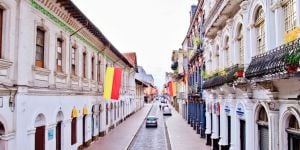
Work in Cuenca
There is no doubt that the Spanish colonial city of Cuenca is a wonderful place to call home, as demonstrated by ...
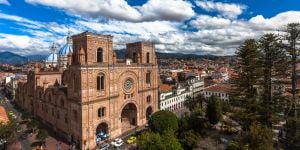
Accommodation in Cuenca
The rose-colored lenses through which potential expats have been made to view Cuenca often blur how the real ...
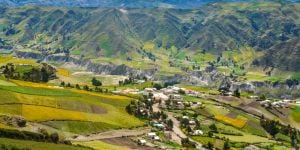
Family and children in Ecuador
Family is everything to an Ecuadorian. The extended family unit is the most important aspect of life in Ecuador, ...
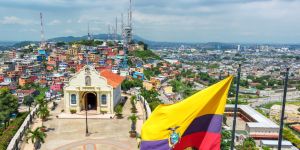
Setting up a business in Ecuador
Forum topics on living in Ecuador



